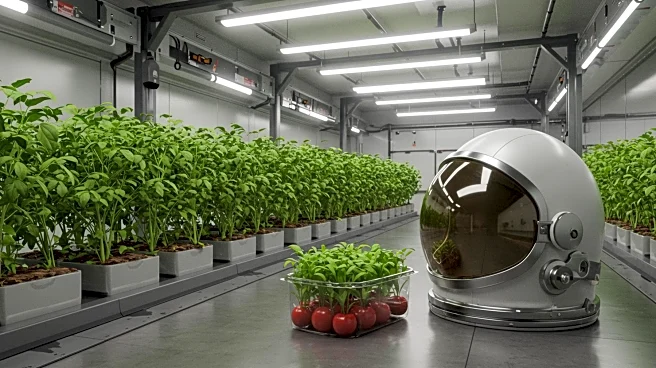What's Happening?
NASA has published a study in npj Microgravity that explores the connection between space-grown food and astronaut health. The research highlights that plants grown aboard the International Space Station have lower concentrations of essential nutrients like calcium and magnesium compared to those grown on Earth. This nutrient deficiency could impact astronauts' bone health and immune function during space missions. The study was a collaborative effort involving NASA's Open Science Data Repository and the Japan Aerospace Exploration Agency (JAXA). It suggests that bioengineering plants with higher nutrient content and designing personalized nutrition plans could mitigate health challenges faced by astronauts.
Why It's Important?
The findings of this study are crucial for the future of long-duration space missions, such as those to the Moon and Mars. Ensuring astronauts receive adequate nutrition is vital for maintaining their health and performance in space. The research could lead to advancements in space agriculture, potentially allowing for more sustainable and self-sufficient space travel. This could benefit not only space missions but also agricultural practices on Earth by providing insights into plant growth under extreme conditions.
What's Next?
NASA is likely to continue exploring ways to enhance the nutritional value of space-grown crops. This could involve further research into bioengineering techniques and the development of personalized nutrition plans for astronauts. The study's findings may also prompt collaborations with other space agencies and research institutions to improve space agriculture and astronaut health.
Beyond the Headlines
The study raises questions about the ethical implications of bioengineering plants for space travel. It also highlights the potential for space research to contribute to solving global food security issues by improving crop resilience and nutritional content.











